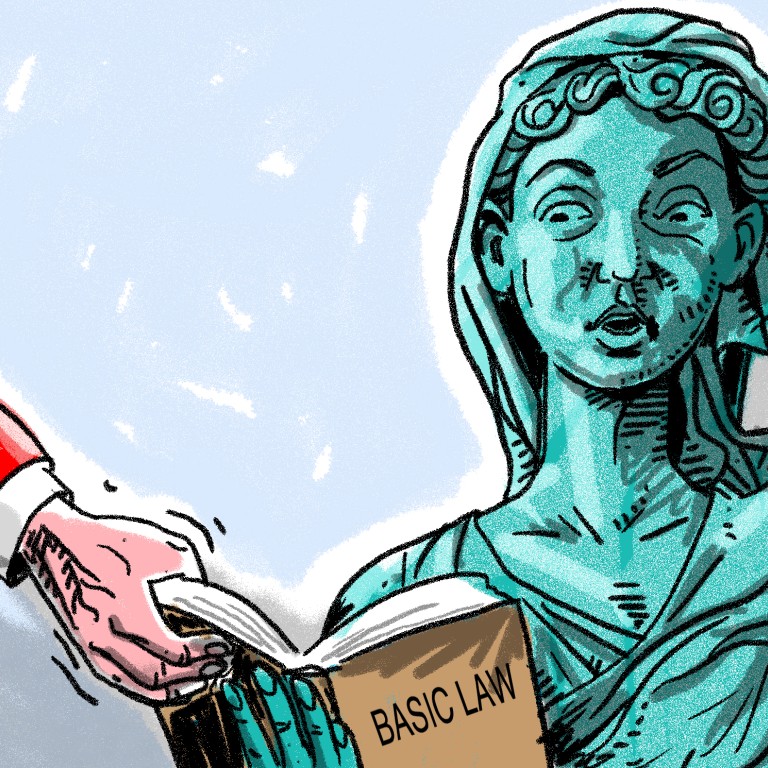
Given concerns over missing bookseller Lee Bo, it’s vital for all sides to respect Hong Kong’s Basic Law or confidence will crumble
Ho Lok Sang says it is in the interests of the Hong Kong and central governments that the SAR’s mini-constitution is upheld, and Beijing must act quickly to restore faith in ‘one country, two systems’

READ MORE: Hong Kong is right to worry about the disappearance of bookseller Lee Bo and his associates
Given the importance of this matter, I hope that legislators of all stripes, including those from the pro-establishment camp, can unite to request a clear directive from the central government to ensure that law enforcement agencies throughout the country which do not have jurisdiction in Hong Kong respect the Basic Law and stay away from the special administrative region.

Since the rule of law is basic to the cause of democracy, it is ironic that these occupiers claim they are pro-democracy. In truth, they are trying to dictate their wish to others and arbitrarily trespassing on other people’s legal rights.

By the same token, it has come to light that mainland police officers have reportedly taken custody of suspects in Hong Kong and shipped them to the mainland.
According to a report in the Southern City News, dated December 3, 2013, businessman Pan Weixi was captured by Guangdong police in Hong Kong and eventually charged and convicted on the mainland for economic crimes.
Pan may well have committed a crime and may well have deserved to be convicted and jailed. Indeed, he had been convicted of fraud in Hong Kong and sentenced to 21 months’ jail in 2001. The Guangdong police could and should have asked the Hong Kong police for help.
If there are no legal provisions for repatriation, the law should be changed to that effect, or alternatively, evidence could have been brought to the notice of the Hong Kong police, who could then have dealt with him according to the laws of Hong Kong.
Presently, the disappearance of five shareholders or key staff members of Causeway Bay Books is causing the Hong Kong public to worry greatly about the integrity of the Basic Law. In particular, they wonder whether their rights to freedom of speech, freedom of the press and freedom to publish, as provided under the Basic Law, are still protected.

The Hong Kong public wonder whether their rights, as provided under the Basic Law, are still protected
A recent editorial in the Global Times is particularly disturbing. It stated that every country would, based on its own interests, find ways to circumvent local laws in order that people who are suspected of offending the laws of that country could be subject to an investigation. This is probably not the position of the central government, but it may be construed by some as such. There is little doubt that those who are used to criticising the central government will use the wording in the editorial to their advantage.

READ MORE: Vanishing freedoms? Disappearance of bookseller Lee Bo raises questions about jurisdiction and rights in Hong Kong
The “one country, two systems” framework and rule of law are too important to be undermined in any way. It is important for the central government to make its position clear, to assure people in Hong Kong and observers around the world that it is serious in upholding the rule of law.
China is a big country and it is understandable that, from time to time, there are slip-ups. But Beijing can turn this into an opportunity and capitalise on it to tell the world that it is serious about the rule of law and “one country, two systems”.
Ho Lok Sang is adjunct professor of economics and honorary fellow at the Centre for Public Policy Studies, Lingnan University

